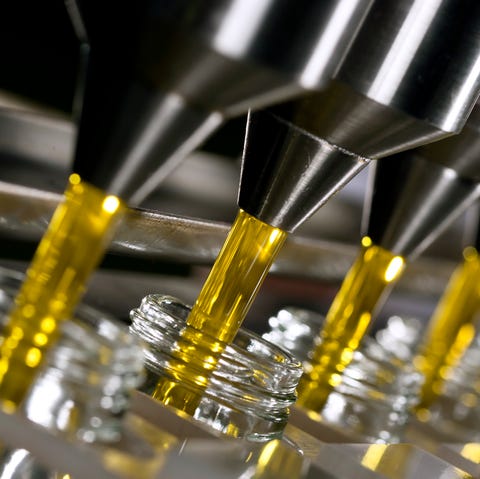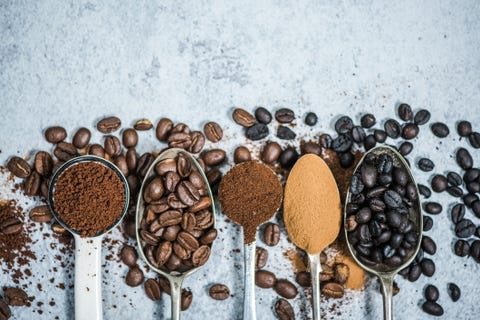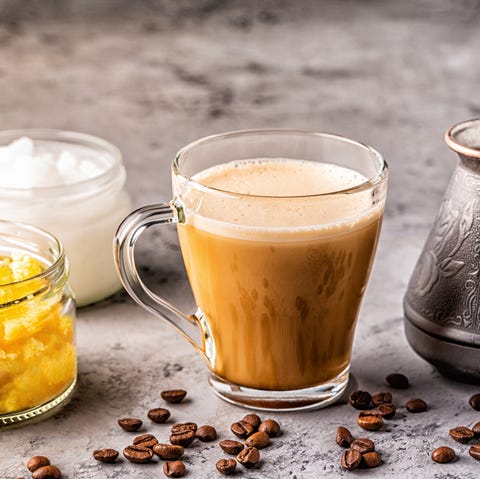Everything You Need to Know About MCT Oil
Unless you’ve been hiding under a Himalayan pink salt lamp, you’ve probably stumbled across so-called “bulletproof” coffee, an amalgam of coffee, butter (preferably yak), and MCT oil.
If you’ve had the misfortune of drinking such coffee, you’ve probably asked yourself at least two questions.
1. What the heck am I doing to myself?
2. MCT oil? What’s that?
Though you’ll have figure out the answer to 1 on your own, here’s everything you need to know about 2.
What, exactly, is MCT oil?
“MCT” is shorthand for “medium-chain triglycerides.” Triglycerides, themselves, are lipids (or fats) found in your blood. The word might sound familiar if you’ve ever had your blood cholesterol tested. Triglycerides are different from cholesterol in that cholesterol helps to build cells and hormones and triglycerides are primarily stored as energy.

Getty Images
“Medium-chain” refers to the molecular length of the triglyceride itself. (This is getting geeky, yes, but REMEMBER YOU ASKED.)
There are actually three types of triglycerides: short-chain (which have six or fewer carbon atoms), long-chain, which have 12 or more carbon chains, and medium-chain, which have eight to 10 carbons.
“Short chain triglycerides are known as short chain fatty acids,” says Abby Langer, R.D., of Abby Langer Nutrition. “They’re not commonly found as saturated fats in food, rather, they’re created when fiber is fermented by bacteria in the gut.”
All this isn’t as important as the fact that medium-chain triglycerides are almost always classified as saturated fats.
In nature, you’ll find MCTs at high levels in coconut, coconut products, and palm kernel oil.

Getty Images
One important note: MCT oil is not coconut oil. While each contains medium-chain triglycerides, the amount and mixture may differ wildly.
Okay, so what’s so special about medium-chain triglycerides?
Your body digests MCTs differently. Because of their shorter molecular chains, MCTs are more easily broken down by your system and converted into medium-chain fatty acids. This efficiency creates a ready-to-use energy store.
According to fledgling research, much of it either conducted on rodents on in humans short term, there may exist links between MCT consumption and brain health, satiety, and exercise endurance.
Repeat: This is nascent research that is based on preliminary studies. As of right now, there are no long-term, double-blind studies on the effectiveness of taking MCT oil supplements in regards to any proposed benefit.
“And there are certainly none on bulletproof coffee,” says Chris Mohr, R.D., co-owner of Mohr Results, a nutrition consulting company.

Getty Images
This has not stopped supplement hawkers and substandard nutrition resources from claiming that MCT oil can improve your cholesterol levels, heart health, waist circumference, “brain octane,” or relationship with your estranged children.
So, should I start taking medium-chain triglyceride supplements?
No.
Your body is an incredibly efficient system on its own. If you’re eating a healthy diet, rich in produce and lean meats, particularly fish laden with omega-3 fatty acids, you’re going to be just fine.
And your coffee? Hold the yak; take it black.
Source: Read Full Article
